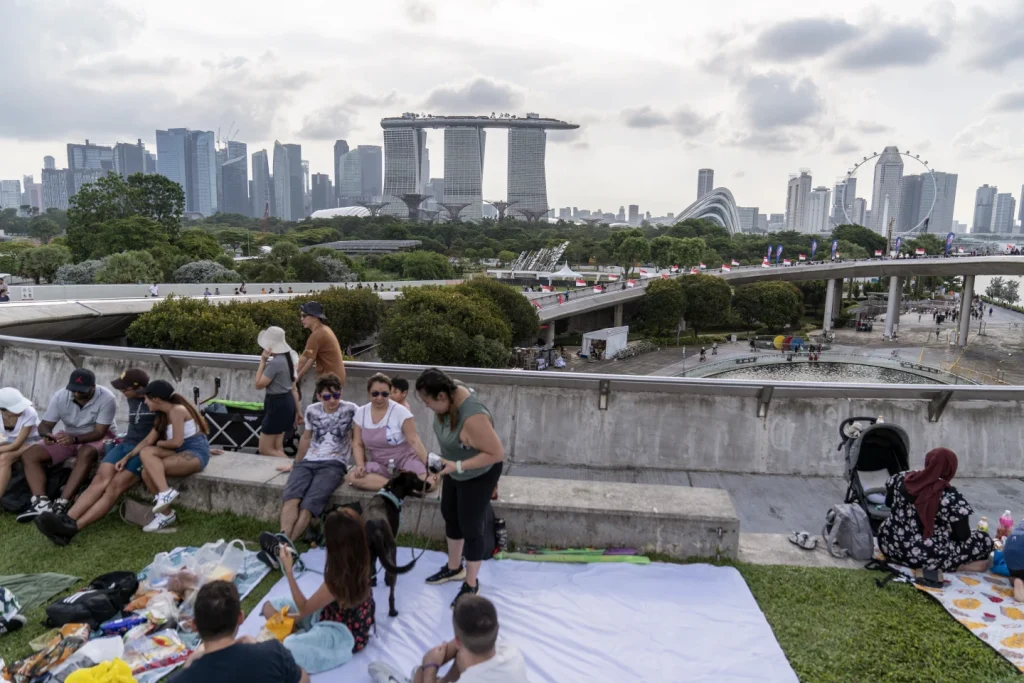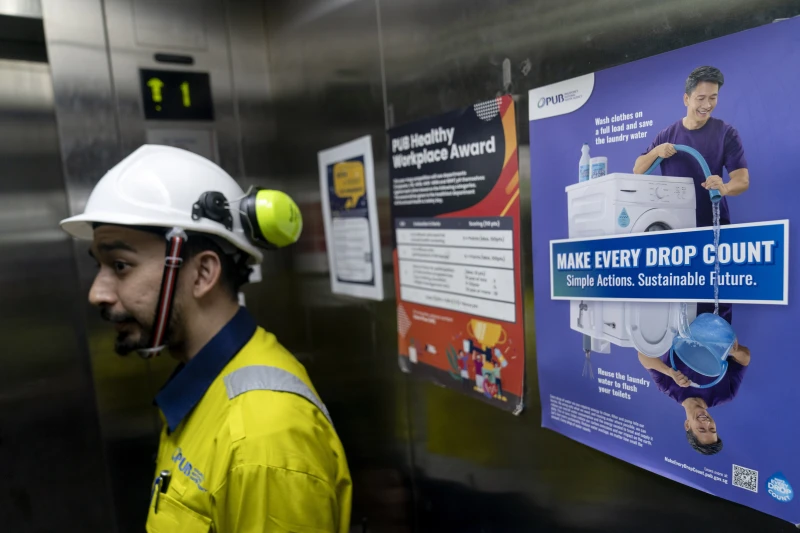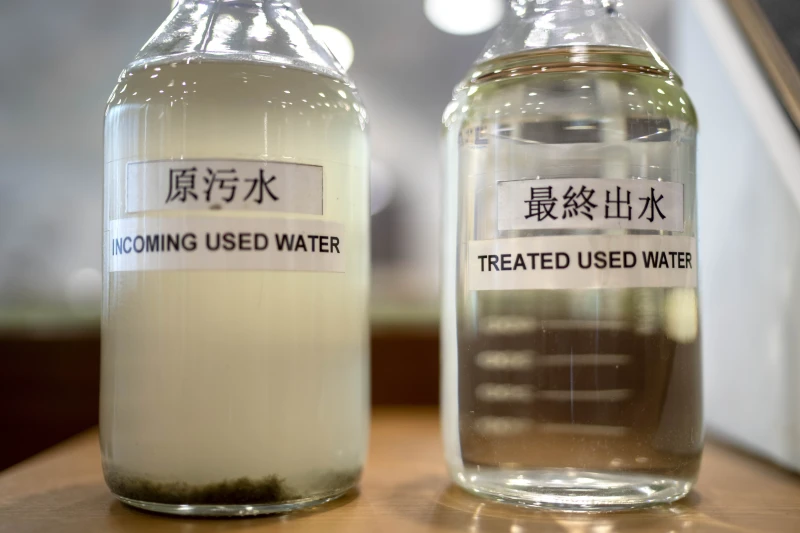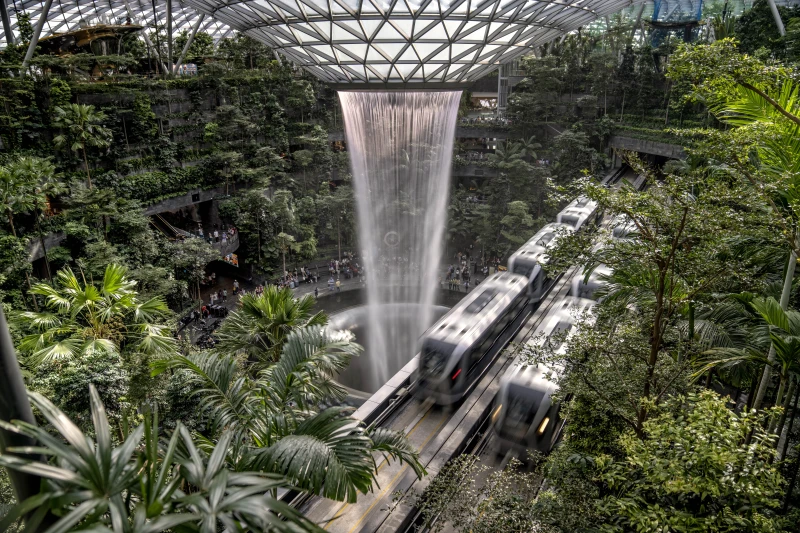Singapore, a small city-state island located in Southeast Asia, stands as a beacon of innovation in water management, showcasing a blend of technology, diplomacy, and community engagement to address its water scarcity challenges.
With a population of six million and a rapidly growing economy, Singapore has been at the forefront of developing cutting-edge solutions to secure its water future.
The heart of Singapore’s water management system lies in the real-time monitoring and utilization of stormwater.
Through a sophisticated network of screens and sensors, government officials track the flow of water, ensuring its collection and purification for the benefit of the nation’s residents.
Harry Seah, the deputy chief executive of operations at PUB, Singapore’s National Water Agency, proudly emphasizes the importance of leveraging real-time data to manage stormwater effectively, highlighting how every drop is channeled to the marina and reservoirs.
Despite its economic success, Singapore faces the challenge of water scarcity, aggravated by its lack of natural water resources.
Historically reliant on water imports from Malaysia, Singapore has been preparing for the eventual expiration of existing water agreements, raising uncertainties about future water security.
The looming expiration of the water deal has led to political tensions between the two nations, with debates over pricing and renegotiation dominating discussions.
In addition to geopolitical challenges, Singapore grapples with the impacts of climate change, which pose further threats to its water security.
The government recognizes the strategic importance of water as a scarce resource and has made significant investments in developing a comprehensive water management strategy.
Prime Minister Lee Hsien Loong underscored the critical nature of water security, emphasizing the increasing difficulty and cost of producing each additional drop of water.
Singapore’s approach to water security revolves around the concept of the four “national taps”: water catchment, recycling, desalination, and imports.
By diversifying water sources and investing in advanced technologies, Singapore aims to ensure a sustainable and resilient water supply for its growing population and economy.
The nation’s commitment to innovation and forward-thinking solutions has garnered international attention, with other water-stressed nations looking to Singapore for inspiration and guidance.

As Singapore continues to navigate the complex challenges of water scarcity and climate change, its proactive and holistic approach to water management serves as a model for sustainable development.
Through a combination of technological advancements, strategic planning, and community involvement, Singapore is setting a precedent for effective water governance in the face of evolving environmental pressures.
Singapore, a small island nation known for its limited water resources, has made remarkable strides in ensuring water security through innovative solutions and strategic partnerships.
With a combination of cutting-edge technology, community engagement, and forward-thinking policies, Singapore has set a global benchmark in water management and sustainability.
The operation of five desalination plants in Singapore stands as a testament to the country’s commitment to producing clean drinking water.
By utilizing advanced membrane technology to remove salts and minerals from seawater, these plants contribute millions of gallons of potable water daily.
Additionally, the implementation of the NEWater program, which purifies wastewater through microfiltration, reverse osmosis, and ultraviolet irradiation, has significantly bolstered the country’s water supply.
Currently providing 40% of Singapore’s water needs, the government aims to increase this capacity to 55% in the near future.
One key factor driving Singapore’s water innovation is the collaboration between public agencies and private businesses.
By leveraging the expertise and resources of the private sector, Singapore has been able to adopt new approaches and technologies in water management. The involvement of industry players has brought fresh perspectives and accelerated progress in the sector.
Moreover, community participation has played a crucial role in raising awareness about water conservation and sustainability.

Initiatives such as the Active, Beautiful, Clean Waters Program have transformed water systems into public recreational spaces, fostering a sense of ownership and appreciation among residents.
By integrating water conservation education into school curricula and engaging students in practical exercises, Singapore is nurturing a generation that values and respects water resources.
Singapore’s water innovation has not gone unnoticed on the international stage. The country has emerged as a global hub for water technology, attracting numerous companies and research institutions.
The export of Singaporean water solutions, such as portable water filters and flood management tools, to over 30 countries underscores the global relevance of Singapore’s expertise in water management.
While Singapore has made significant progress in achieving water security, challenges remain on the horizon.
As Seah, a key figure in Singapore’s water sector, emphasizes, continuous vigilance and innovation are essential to sustain the achievements of the past decades.
The evolving landscape of water scarcity and climate change demands ongoing adaptation and resilience in Singapore’s water management strategies.

In conclusion, Singapore’s journey towards water security serves as a beacon of inspiration for nations grappling with water scarcity and sustainability challenges.
Through a combination of technological innovation, public-private partnerships, and community engagement, Singapore has demonstrated that a holistic approach to water management is key to ensuring a sustainable future.
As the global demand for water solutions grows, Singapore’s experience offers valuable lessons and insights for shaping a more water-secure world.
